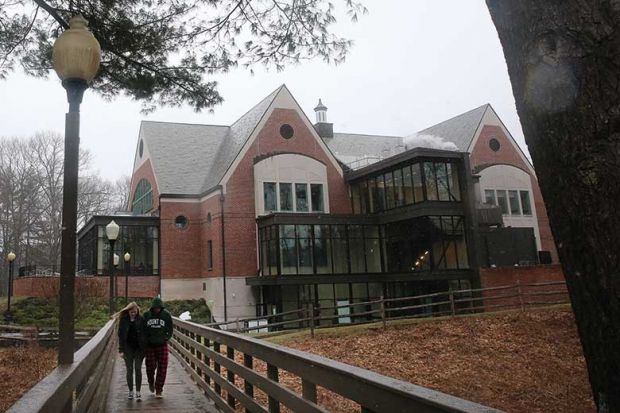Massachusetts’ move to require private universities to undergo regular “stress tests” of their financial viability has triggered debate about the merits – and drawbacks – of increased transparency in this area.
The state’s idea is to give earlier warnings to students, faculty and the wider community, so that institutional failures are less of a surprise and therefore less damaging.
In considering the shift, Massachusetts was “recognising that the system of higher education has a new kind of unprecedented vulnerability”, said Paul Reville, Francis Keppel professor of practice of educational policy and administration at Harvard University.
Nationwide, private US colleges are now closing at a rate of 11 per year, with the pace expected to increase, according to Moody’s Investors Service. High-profile cases include the 70-campus Alabama-based Education Corporation of America for-profit chain, which threw some 19,000 students out of class in December with virtually no prior notice; and Mount Ida College in Massachusetts, which did the same in May to its 1,500 students.
Accrediting agencies assess the financial health of virtually all US colleges as part of the federal government’s system for student aid eligibility. But those reviews usually take place every seven years.
Such intervals are far too long to alert the public before a problem can become too severe, said Professor Reville, who spent five years as the state secretary of education in Massachusetts.
States may be realising, after having to deal with the aftermath of abrupt closures, that they somehow need to take more preventative action, Professor Reville said.
One major downside of mandating regular audits, however, is that public knowledge of a college’s financial distress could lead students to leave and convince potential applicants to stay away, putting distressed colleges deeper into a downward spiral.
Most colleges do not want this type of information made public, said Susan Fitzgerald, an associate managing director at Moody’s heading its higher education ratings team, “because it is a very reputation-driven industry, and absolutely you could influence student choice if there were knowledge that a college was under financial stress”.
Massachusetts’ plan, which was due to be considered by its Board of Higher Education, would assess whether an institution had the resources to stay open another 18 months. But the findings would not be made public, it said.
It’s not obvious, however, how information of a negative finding could be kept confidential if the purpose is to alert students and the wider public, Professor Reville acknowledged. In that case, he said, “it could conceivably be a contributing factor” to a college’s accelerated decline.
One place that may find out soon is Hampshire College, an experimental-format institution in western Massachusetts that just announced it sees financial trouble coming in a few years, and is seeking a partner for a merger to help keep it running long term.
Other colleges in similar circumstances have announced mergers, but typically after they’ve already found their partner. In making their plans public, Hampshire leaders said they would wait until February before notifying applicants of their acceptance for the coming year, so they could be sure of extending them a lasting commitment.
Many less adventurous colleges – at least in Massachusetts – may be forced into a similar position of public disclosure. “I see it as a necessary development to protect against worse consequences,” Professor Reville said. “There are just some trade-offs there.”
Register to continue
Why register?
- Registration is free and only takes a moment
- Once registered, you can read 3 articles a month
- Sign up for our newsletter
Subscribe
Or subscribe for unlimited access to:
- Unlimited access to news, views, insights & reviews
- Digital editions
- Digital access to THE’s university and college rankings analysis
Already registered or a current subscriber?








